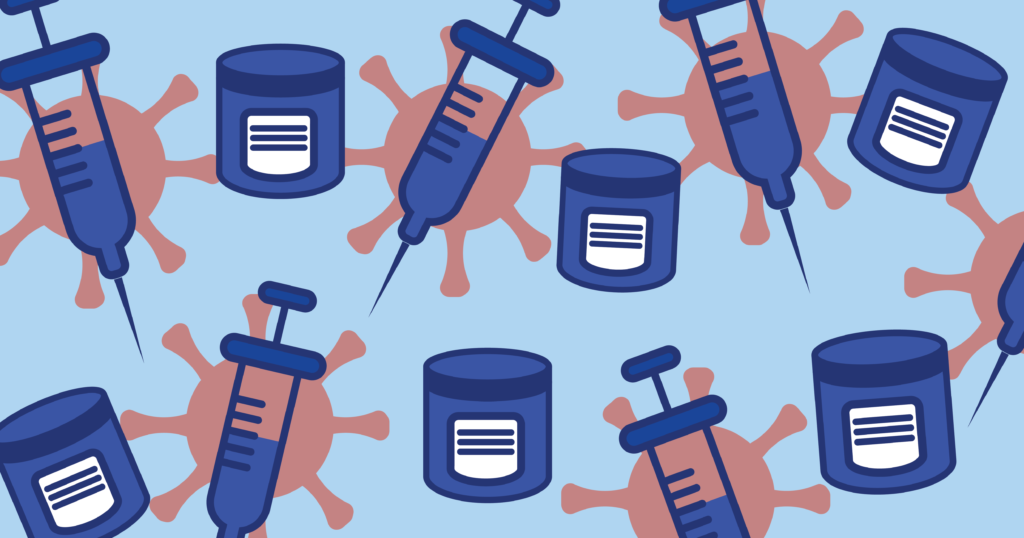NMU is currently preparing to begin another round of COVID-19 vaccine distribution to those eligible in priority Group B, through the Northern Center. A high-end freezer was purchased to effectively store the vaccine, and the university’s infrastructure is proving vital to the community at large. With luck and strategic organization, NMU will be able to significantly reduce the risk of contracting COVID-19 in the Marquette area, all in the coming year. One frustrating barrier, however, may be individual resistance to the vaccine.
“NMU will operate the vaccine clinics similar to the Passport to Campus mass COVID-19 testing events held at the beginning of both semesters this academic year,” according to an NMU press release. “Emails will be sent to eligible individuals based on priority criteria and availability.”
The general public, including low priority members of the community such as healthy students, is expected to be able to get the vaccine by this May, according to coverage by the North Wind.
The Pfizer vaccine is 95% effective, and the Moderna vaccine is 94% effective against COVID-19. It is certain that if NMU achieves a high rate of vaccination, perhaps through mandatory vaccination in the coming year as more doses become available, the risk for contracting COVID-19 here will dramatically decrease. Although a mandatory vaccine may at some point be possible for all students at NMU, some may resist a mandatory vaccine, as it could become a sensitive topic relating to personal choice. If people resist wearing masks, it is certain that many will resist a mandatory vaccination on a similar argumentative basis. It would be difficult, perhaps impossible, for the university to require students to comply with a mandatory vaccination. That said, vaccinations for measles are required for students to attend classes.
A recent poll conducted by the Associated Press showed that only 67% of American citizens are planning to get vaccinated against COVID-19, with 17% of people uncertain, and 15% who will refuse the vaccine. This brings up questions as to how many people, students and faculty, on campus have reservations about getting vaccinated. Perhaps this hesitancy will impact our next academic year and determine whether we can return to majority face-to-face classes.
“The State of Michigan’s goal is to have 70% of the people vaccinated by the end of 2021, which means that we are still a long way from the ultimate goal,” according to an article by Rural Insights.
However, if Michiganders are resistant to the vaccine, this goal may not be so realistic.
Currently, 17% of Americans are vaccinated against COVID-19, according to Our World in Data. And, according to WebMD, we may only reach herd immunity against COVID-19 after 50% to 67% of people are resistant to the virus. The increase in cases of COVID-19 variants, such as those from the UK, Brazil and South Africa, makes the distribution and receipt of vaccines even more urgent, as some of these variations are more contagious than the COVID-19 we all know and hate.
There is some concern in the healthcare industry that vaccination will not be fast enough to keep up with the variants as they develop. Therefore, it is important that even as the vaccine is distributed, we all keep wearing masks and maintaining sanitation and hygiene protocols.
That said, what is making people resistant to getting the vaccine? Many seem to espouse concerns over the sped-up timeline during which the vaccine was tested and deemed safe. However, serious side effects from the vaccine are quite rare, according to the FDA factsheet for Pfizer vaccine recipients. Some common side effects of the vaccine include injection site pain swelling or redness, tiredness, headache, muscle pain, chills, joint pain, fever, nausea and swollen lymph nodes.
“These symptoms are normal and are a sign that the body is building protection against the virus that causes COVID-19,” according to the CDC.
A great deal of resistance to the vaccine also comes from insidious misinformation spread through nonfactual media. Some may be concerned that the vaccine will alter their genetic code. However, the mRNA contained in the vaccine will not enter the nucleus of the cell to alter a person’s genetic code.
Another piece of misinformation, is that the vaccine contains coronavirus or human cells. This is not the case. Look at the ingredients.
Additionally, there is a concern among young women that receiving the vaccine can affect their fertility and make it difficult to become pregnant in the future. This is also untrue, according to the Royal College of Obstetricians and Gynaecologists.
The vaccine is also not able to make a person sick with the COVID-19 virus. It does not contain the virus itself, only RNA that will teach the body how to respond to the virus.
In short, it is recommended that those with concerns about the vaccine do research on their specific concerns. We hope that NMU will work towards a high rate of vaccination once vaccines are available to be distributed to low-risk students. We hope that next fall we will come to campus and pass through a passport to campus event offering the vaccine for those who have not already received it. We also hope that students themselves will aid in spreading correct information about the vaccines and encourage their peers to keep the community safe and informed.
Editor’s Note: The North Wind is committed to offering a free and open public forum of ideas, publishing a wide range of viewpoints to accurately represent the NMU student body. This is an editorial, written by the North Wind Editorial Board in its entirety. It reflects the majority views of the individuals who make up the editorial staff of the North Wind. It is the policy of the Editorial Board not to endorse candidates for any political office, in order to avoid aligning this public forum with particular political organizations.






























